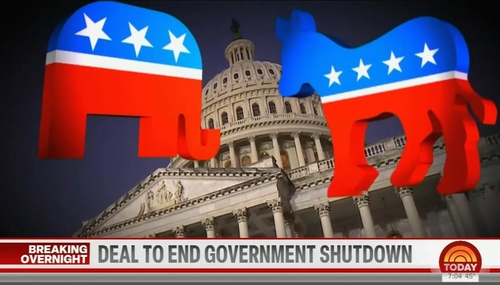Ick, you almost won't want to look at the Meet the Press transcript from yesterday. With Tim Russert hosting Ted Koppel and Tom Brokaw and no one else, it was predictably an hour of liberal sermonizing. It's a scandal that America won't raise taxes. It's a scandal that America won't acknowledge they go to war for oil. It's a scandal that some people still don't have government-funded health insurance. They started with Hurricane Katrina. Brokaw railed against America still having a "permanent underclass." (MRC nerd point: This is the official transcript, not reviewed against tape.)
I thought it stripped away in this country what we've all known but failed to acknowledge: that--this kind of permanent underclass that we have in this country, with so few resources available to them. To the rest of the world, it was shocking. Here's the United States of America, the richest country in the history of the world, you know, portraying itself around the globe now as the patron of democracy and to show the way, and then we have this happening in our midst. And it's a question of, now, how we move forward and begin to deal with it.
Koppel then replayed the argument that sure, no one was overtly racist, but it was still a fantastic question that needed to be asked. Both anchors acknowledged state and local governments failed, but did NOT acknowledge that this is not the way the media coverage unfolded. Nagin and Blanco were passed over, and the racism and incompetence charges were mostly thrown at the federal government, and Team Bush in particular. Koppel insisted that the truth wasn't really the issue. It was just a feeling that liberals had:
...the question had to be asked: if that had been a section of a city that was populated by middle-class white people, would the response have been the same? And the more we discovered about how it worked, it's not that racism was actively at work. It's not that anybody was sitting there saying, "Oh, we don't have to worry about New Orleans. It's mostly black anyway, 60, 70 percent black." I think there was just a feeling that you didn't have to be as engaged as I think the federal government would have been. And, of course, the president, remember, was at that time off at his ranch, and we was ill served by his advisers, who led him to say at his ranch. He was late getting off the mark. The federal government was late getting off the mark. And then there was this terrible competition between and among city government, municipal government, state government and federal government. It was just--it was a mess from start to finish.
Brokaw acknowleged that state and local response was "outrageous and indefensible" (but no one asked him about Brian Williams going easy on Nagin just weeks ago), but he kept hammering on the "underclass" issue:
I think Ted is correct when he says it was not overt or active racism. But New Orleans had kind of been out of sight, out of mind. It was a city that had been struggling for 50 years with its own corruption, with a pattern of violence down there, and then this growing black underclass that people just turned their heads away from...I'm working on a documentary now about race and poverty in America and the unintended consequences of what has happened as a result of desegregation and opportunities for ambitious black Americans who got out of traditional black neighborhoods and what was left behind. And what was left behind is this permanent population that we don't have much of a clue about how we're going to deal with it.
Typically, they once again patted themselves on the back for holding [some] government officials accountable with their raw, emotional TV coverage:
RUSSERT: Not quite. This is Christmas morning. But, Tom, there is a line where people suggested, "Well, during the Iraq War, the press wasn't aggressive enough, but when it came to Katrina, they found themselves and told truth to power."
BROKAW: Well, there were no gray areas in Katrina. A lot of what happened during the Iraq War and the lead-up to it was unknowable, and what happened with Katrina was there for everyone to see. And, in fact, having gone down there several days after Katrina struck--in fact, 10 days after it struck--I was stunned by the fact that it's a lot worse on the ground than it even appeared to be on television. But the rest of the country was witness to what Reuven Frank, who was the founder of "Huntley-Brinkley," once called television's greatest strength: It transmits experience. And that experience came into every home in America, and then the people sat there. And you had that parish chief on your program, weeping, saying they held--"They didn't come. They promised they would come and they didn't come."
RUSSERT: Aaron Broussard.
BROKAW: And you had the little--Charles Evans saying to Campbell Brown, "It's pitiful down here"--a 10-year-old boy who summed it up better than anyone else, probably, in his kind of naive eloquence. And everyone got it. It was just--it was indefensible. So then that's when you hold government accountable.




